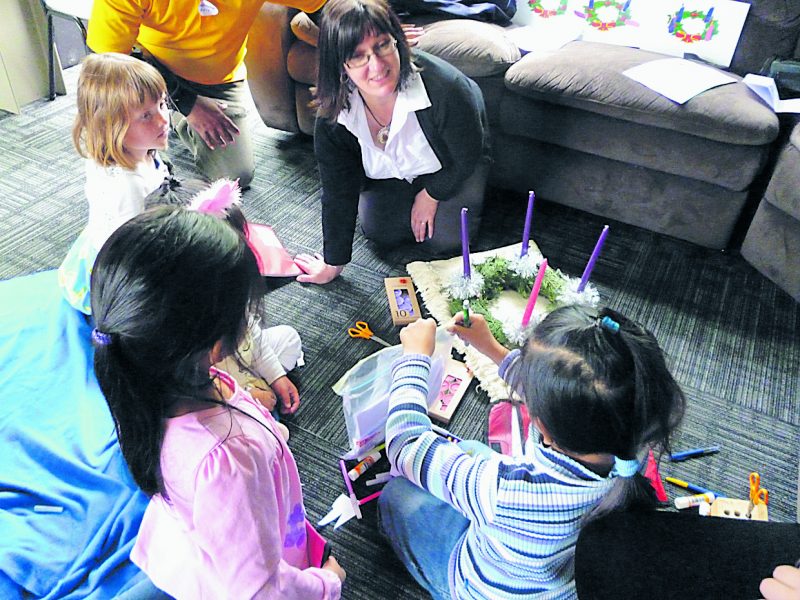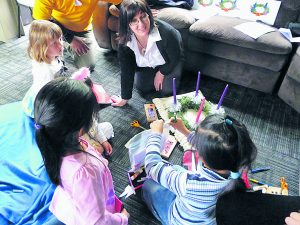by ROWENA OREJANA
GORE — A parish priest in one of the remotest towns of New Zealand has warned of the the urbanisation of the Catholic Church and expressed concern at the possibility of losing Catholic rural children to secularism.
Fr Damian Wynn-Williams, parish priest of the Church of the Blessed Sacrament, told NZ Catholic that children in rural areas are not receiving any Catholic education at all, apart from the adult sermons they may receive in church on Sunday.
“I’m really concerned for the paganisation of our rural areas,” he said. “I think, increasingly, the Church in New Zealand is becoming an urban reality. The faith of the country people may be great, but I’d say we’ve already lost a generation.”
He said the kids coming in from rural areas have little to almost no knowledge of the Church or of the faith. “We’ve lost a generation and now we’re dealing with the children of the
lost generation,” he said.
He said up until a few years ago, the pastoral area had a vibrant CCD programme because there were some religious with background in teaching who were free to give their services.
“None of those women is still available,” he said. “I was very uncomfortably aware that for those areas without Catholic schools, which is all our outlying parishes, we no longer have
much in the way of catechesis for the children.”
Fr Wynn-Williams, together with Susan Rowley, had set up the Bushy School two years ago to address this concern. “Bushy school is a little attempt at a response to that huge, huge
need. Bishop Colin [Campbell] is very proud that we have this project. But
it’s only a drop in the ocean,” he said.
Mrs Rowley, a retired primary school teacher, had just graduated from Dunedin diocese’s Walking New Paths programme two years ago and had not yet been commissioned into any pastoral work when she was put in touch with Fr Wynn-Williams.
“I had a recollection of this type of day which was called a Bushy School day back in the 90’s to the early 2000’s run by the religious educators of Dunedin diocese. It was sort of a vocation day. I thought we could revitalise this idea,” said Mrs Rowley.
The idea of a Bushy School was associated with the Sisters of Mary MacKillop, who went to the bush and taught the children in the remote areas about the faith.
“We’re actually drawing children from predominantly the Gore pastoral area, but we’re also reaching over to all schools outside of Invercargill, and over to Westland, Southland and up
to South Otago. It’s a big area, but it doesn’t mean that we are inundated by children,” she said.
At the moment, they have a maximum of 26 children. Mrs Rowley would like to see the number grow to 40.
The school takes place three times a year, with the second to be held this month. Funding is a problem as they have not received any from the national Catholic Church and the grant
they have received from the Tindall Foundation as well as the help they had received from the Catholic Women’s League and the St Vincent De Paul Society is about to run out.
St Peter’s College students are a big help on the day. The school alsoprovides the hall and lunches for the families.
“Our financial resources are very severely stretched. We are constantly told [by the diocese] we haven’t got money for this, we haven’t got money for that. So all the fundraising for
Bushy school is done in this parish,” said Fr Wynn-Williams.
The other glaring problem they face is the lack of teaching resources and materials for such a unique school.
“The newly formed education council in the Dunedin diocese is very supportive of the work I’m doing. They do ask me what sort of help I need. I need someone to help me with the ideas
and it will be great to have an actual programme,” she said.
The families travel an average of an hour and a half just to get to the school.
“They look at other families and they are in Catholic schools and see what they are all learning, they really feel as though they are missing out. A lot of these families do not have the option of attending a Catholic school,” she said.


Reader Interactions